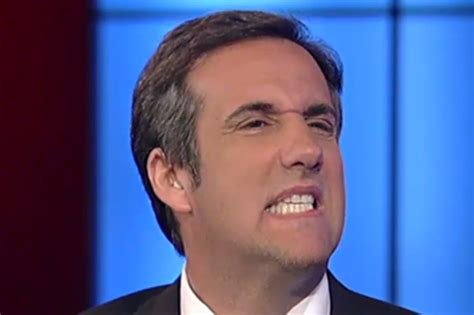Former Special Operators, Advocates Call On Congress To Block Cuts To Special Operations

- Former special operators and advocates say the Pentagon’s plan to slash thousands of Army special operations positions would cripple the U.S. military, according to a letter obtained by the Daily Caller News Foundation.
- Special operations troops play unique roles that cannot be replaced by conventional forces and are as important as ever amid escalating global tensions.
- “This will gravely compromise our national security and send the wrong signals to both our foreign allies and adversaries,” the Special Operations Association of America (SOAA) wrote in a letter to Congress.
An association of former special operators is asking Congress to block the Pentagon’s planned cuts to U.S. Army special operations forces, which could include Green Berets, according to a letter obtained by the Daily Caller News Foundation.
Secretary of Defense Lloyd Austin is poised to approve a reduction of approximately 3,000 positions from the Army’s special operations forces (USASOC), possibly including Green Berets, at the Army’s recommendation, according to service officials and media reports. The Special Operations Association of America (SOAA) opposes the cuts on the grounds that the U.S. military can ill afford to lose elite troops that historically have performed some of the most dangerous and demanding missions and filled an outsized role in deterring adversaries during a time when global crises are escalating.
“We are deeply concerned that the Pentagon is contemplating a 10% personnel reduction, equivalent to approximately 3,000 troops from the 36,000 in USASOC’s ranks. This will gravely compromise our national security and send the wrong signals to both our foreign allies and adversaries,” SOAA, which advocates for the special operations community, wrote in the letter sent to the House and Senate Armed Services Committees on Wednesday.
It’s unclear exactly where the cuts will take place, but media reports suggest that the cuts will occur among so-called “enablers,” the vast array of occupations that help “trigger-pullers” do their jobs. That includes intelligence operators, psychological warfare personnel and those who work in logistics, communications and civil affairs.
SOAA isn’t buying that explanation. Each occupational specialty is unique; operators in each group go through specialized training and are “the very core of USASOC’s success,” SOAA wrote.
The Army’s special operations units include Green Berets, Army Rangers and the Special Operations Aviation Unit (Night Stalkers), as well as psychological warfare and civil affairs units.
Special operations troops are known for conducting missions requiring exceptional skill and intelligence, including hostage rescue and targeted assassinations of terrorist leaders. But they also play a crucial role in telegraphing American power to adversaries, according to SOAA.
“USASOC has acted as a bulwark, preventing governmental collapses and full-scale enemy occupations. Their unique blend of linguistic, cultural, and diplomaic acumen empowers them to collaborate efficiently in ambiguous environments,” SOAA wrote.
During the Cold War, the U.S. relied on special operations troops to reinforce commitments to other countries and put a wall up against the spread of Communism, Defense News reported. They do the same today, working to increase the capacity of partner militaries.
One reason Ukraine’s military did not crumble after Russia’s invasion is because U.S. special operations and conventional forces trained and equipped Ukrainian forces after the 2014 invasion and annexation of Crimea, David Cook, SOAA’s executive director and a former member of the 4th Psychological Operations Group, told the DCNF.
The “irregular warfare” capabilities provided by SOF allow the U.S. to achieve geopolitical goals short of going to war, he explained.
Now, elements of the Joint Special Operations Command, which may include Green Berets, are on standby if needed to rescue Americans held captive by terrorists. They’re currently advising the Israeli military and providing intelligence support as Hamas threatens up to 150 hostages.
#OTD 30-years-ago we remember the fierce Battle of Mogadishu. TF #Ranger had 18 killed and 84 wounded. Snipers MSG Gary Gordon and SFC Randy Shughart were posthumously awarded the Medal of Honor. #ARSOF were the consistent force multipliers in Somalia from 1992. #SF #CA #PSYOP pic.twitter.com/PnhSf7YIa6
— USSOCOM (@USSOCOM) October 3, 2023
Of the proposed reductions, roughly a third will come from billets that are already empty, a defense official familiar with the planning told the DCNF. The official spoke on condition of anonymity to discuss the plans in greater detail. No one will be forced to separate because of the cuts, the official said.
The cuts are part of a broader, long-term restructuring of the Army in response to changing national security requirements, Army Secretary Christine Wormuth said earlier in October.
“There’s stuff that we built purpose built for [counterterrorism] and [counterinsurgency] that we don’t need as much anymore,” Wormuth told reporters during a media roundtable on Oct. 3. “There are new capabilities that we need to bring into the force, so that is the transformation of force structure that we have been working on.”
The Army’s total size has decreased partially due to years of short recruiting, Wormuth said. At the same time, the Army’s special operations forces have grown as a percentage of the total force during years of counterterrorism focus in the Middle East.
The looming prospect of great power competition calls for reemphasizing conventional forces, while new technologies can in cases perform the same functions as human operators, Wormuth said.
“Our SOF grew considerably over the last 20 years, given the kinds of wars we were fighting. Meanwhile, the overall Army has gotten smaller. So, I think there’s some room to make some very modest targeted reductions there,” Wormuth said, adding that the Army intended to communicate with Congress about the proposed changes and why the Army believes they are necessary.
While direction to cut positions came from the top, U.S. Special Operations Command (SOCOM), which coordinates special operations forces from across the service branches, and the Assistant Secretary of Defense for Special Operations and Low-Intensity Conflict are responsible for determining what positions should go to maintain operational integrity and minimize risk, the defense official told the DCNF.
SOCOM reportedly pushed back against the proposed cuts, so the question reached the Office of the Secretary of Defense level, according to Defense One.
“Special operations forces are America’s premier force. In the face of recruiting challenges and growing threats, cuts to SOF aren’t the answer. The U.S. must be prepared to deter aggression by great power—that means we need a fully operational SOF,” Republican Iowa Sen. Joni Ernst said on Oct. 5, responding to reports of imminent SOF cuts.
The Army did referred the DCNF to Wormuth’s comments from Oct. 3.
Content created by The Daily Caller News Foundation is available without charge to any eligible news publisher that can provide a large audience. For licensing opportunities of our original content, please contact licensing@dailycallernewsfoundation.org



